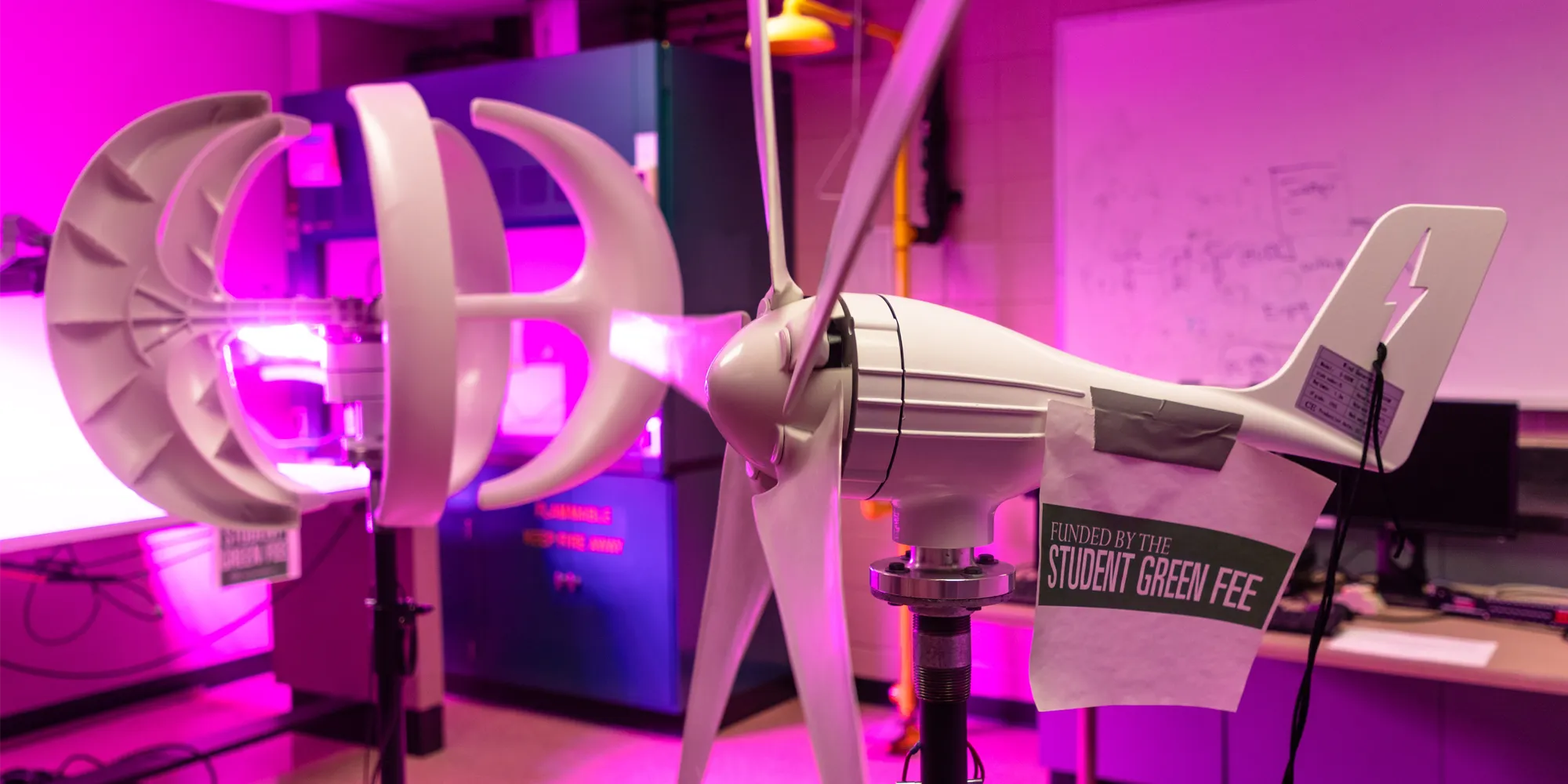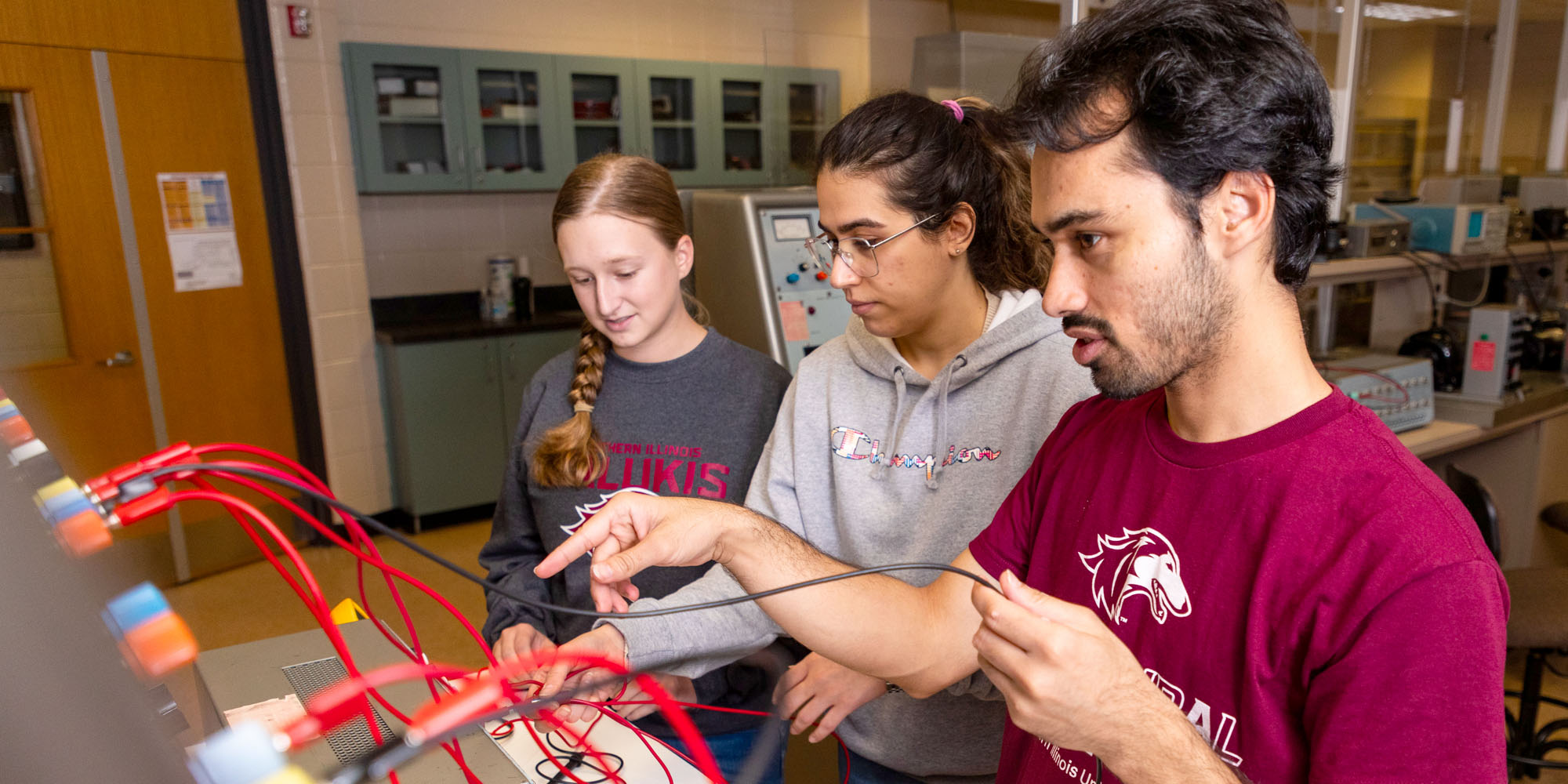School of Electrical, Computer and Biomedical Engineering
Give Now
If you would like to make a donation to our "Electrical & Computer Engineering Development Fund," you can make a donation online by going to the Southern Illinois University Foundation Website.
Research
All of our faculty members have doctoral degrees from major research universities. They develop and sustain high-quality research programs and make every effort to involve students in their research as much as possible. Many of our faculty members have national and international visibility in their respective fields of expertise. Our faculty members have obtained prestigious research grants from federal agencies such as the National Science Foundation (NSF), National Institutes of Health, Department of Defense and the Department of Energy, and from high-tech industries. In addition, there are two research centers in the Department.
The Consortium for Embedded Systems was approved by the Illinois Board of Higher Education in 2022 at Southern Illinois University. The purpose of CES is to advance the field of embedded systems (hardware, software, and architectures) to new levels, often with advances in artificial intelligence, and serve the needs of its industry members that share advancements in application domains that include aerospace, automotive, microelectronics, and the modern power grid. The priorities of member companies center around energy-efficient, fast, reliable, safe, and sustainable solutions.
NSF approved the NSF IUCRC for Intelligent, Distributed Embedded Applications and Systems (IDEAS) in March 2023. The participating Universities include Arizona State University, Southern Illinois University Carbondale, and University of Southern California.


 Welcome to the website of the School of Electrical, Computer, and Biomedical Engineering at SIUC. This site contains information about the programs in the School and course information, our teaching philosophy and educational objectives, and research activities. I hope that you will find the posted information useful. Please contact us for any additional information.
Welcome to the website of the School of Electrical, Computer, and Biomedical Engineering at SIUC. This site contains information about the programs in the School and course information, our teaching philosophy and educational objectives, and research activities. I hope that you will find the posted information useful. Please contact us for any additional information. Our Bachelor of Science (BS) programs in Biomedical Engineering, Electrical Engineering and Computer Engineering are accredited by the Engineering Accreditation Commission (EAC) of ABET (
Our Bachelor of Science (BS) programs in Biomedical Engineering, Electrical Engineering and Computer Engineering are accredited by the Engineering Accreditation Commission (EAC) of ABET (